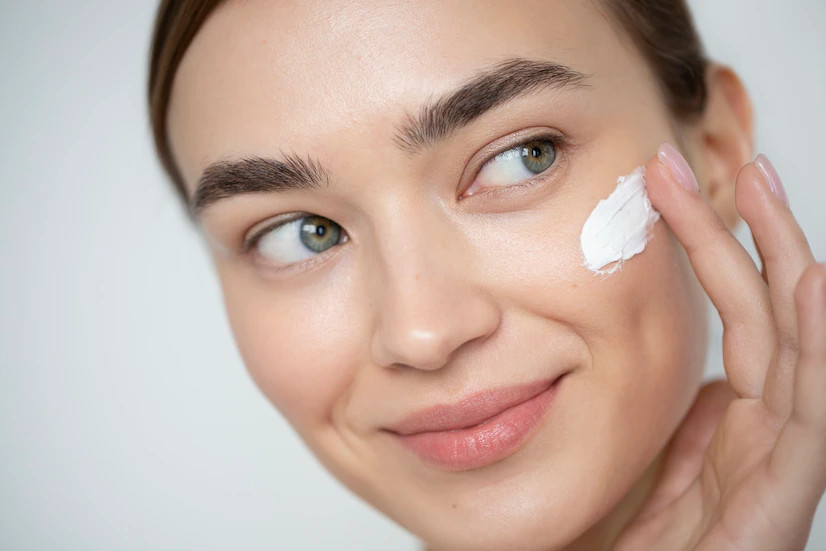Dry skin, also known as xerosis or xeroderma, is a condition when the skin becomes rough, tight, scaly, flaky, and itchy due to water loss from the outer layer of the skin.
Numerous factors, including harsh weather, sun exposure, using the wrong skincare or hygiene products, taking long baths, and skin conditions, can all aggravate dry skin. Restoring skin hydration can be achieved through the use of moisturizer. However, what happens when your skin remains dry even after using moisturizer?
The reason your skin remain dry even after using moisturizer
Moisturizers are essential for treating dry skin. Moisturizers help maintain the skin's moisture content and replenish the skin's natural moisture barrier. Moisturizers come in a variety of forms and function in various ways, such as preserving moisture, locking in moisture, or keeping skin feeling silky and smooth.
However, occasionally, your skin can remain dry even after applying a moisturizer. This can be due to a number of things, including:
Over-cleansing the skin
Over-cleansing with a soap with a harsh formula has the potential to remove natural oils and other components from the skin that keep it hydrated and healthy. Using soap with a harsh formula can harm the skin's natural barrier, making it tighter, drier, and more prone to irritation.
Experts recommend cleansing the skin, especially the face, twice a day, upon waking and before going to bed. You should always cleanse your skin before going to bed, especially if you wear makeup in the morning or the afternoon.
Using products with an excessively harsh formula
Soap and other skin-cleansing products contain a chemical called surfactant, which aids in the removal of extra oil and dirt. The two types of surfactants are synthetic detergent-based and soap-based.
Soap-based surfactants can harm the skin's natural moisturizing factor and barrier function, in addition to causing dryness, redness, and irritation.
Using products that contain fragrance
Products that use fragrance have the potential to cause skin irritation and allergies, particularly when the fragrance concentration is high. Fragrance in skin-cleansing products, particularly for those with sensitive skin, can lead to skin irritation, redness, and even rashes.
Using an expired moisturizer
Checking the expiration date is important to ensure that the ingredients are still effective. Furthermore, the way moisturizers are stored affects how effective they are. If you store your moisturizer in an area that receives direct sunlight, the stability of its ingredients might be affected.
Frequently taking hot baths
Taking long, hot showers can cause your skin to dry out. The water's excessive heat results in the loss of natural oils, which act as the skin's natural moisturizer and barrier. This makes the skin dry, prone to irritation, and worsens pre-existing skin conditions.
You should avoid taking hot baths too frequently, keep the bath water temperature moderate, and bathe for no longer than ten to fifteen minutes to maintain hydrated skin.
If you take all the recommended precautions but your skin still feels dry, you might have psoriasis, eczema, or another medical condition. Consult your doctor or dermatologist for proper skincare instructions.
If you need medical advice or consultation, you can either visit a doctor or make use of the consultation features that are available in the Ai Care application by downloading the Ai Care application from the App Store or Play Store.
Looking for more tips and health tricks, first aid, and home remedies? Click here!
- Sean Edbert Lim, MBBS
Adrienne Dellwo (2022). Why Is My Skin So Dry Even When I Moisturize?. Available from: https://www.verywellhealth.com/dry-skin-6502004
Mayo Clinic (2023). Dry skin. Available from: https://www.mayoclinic.org/diseases-conditions/dry-skin/symptoms-causes/syc-20353885
Harvard Medical School (2019). Moisturizers: Do they work?. Available from: https://www.health.harvard.edu/staying-healthy/moisturizers-do-they-work
Jennifer Worick (2022). 10 Rules for Washing Your Face: Dermatologists’ Dos and Don’ts. Available from: https://www.everydayhealth.com/beauty-pictures/everything-you-didnt-know-about-washing-your-face.aspx
Heather L. Brannon, MD (2022). Is Soap Bad for Your Skin?. Available from: https://www.verywellhealth.com/what-soap-does-to-your-skin-1069544











